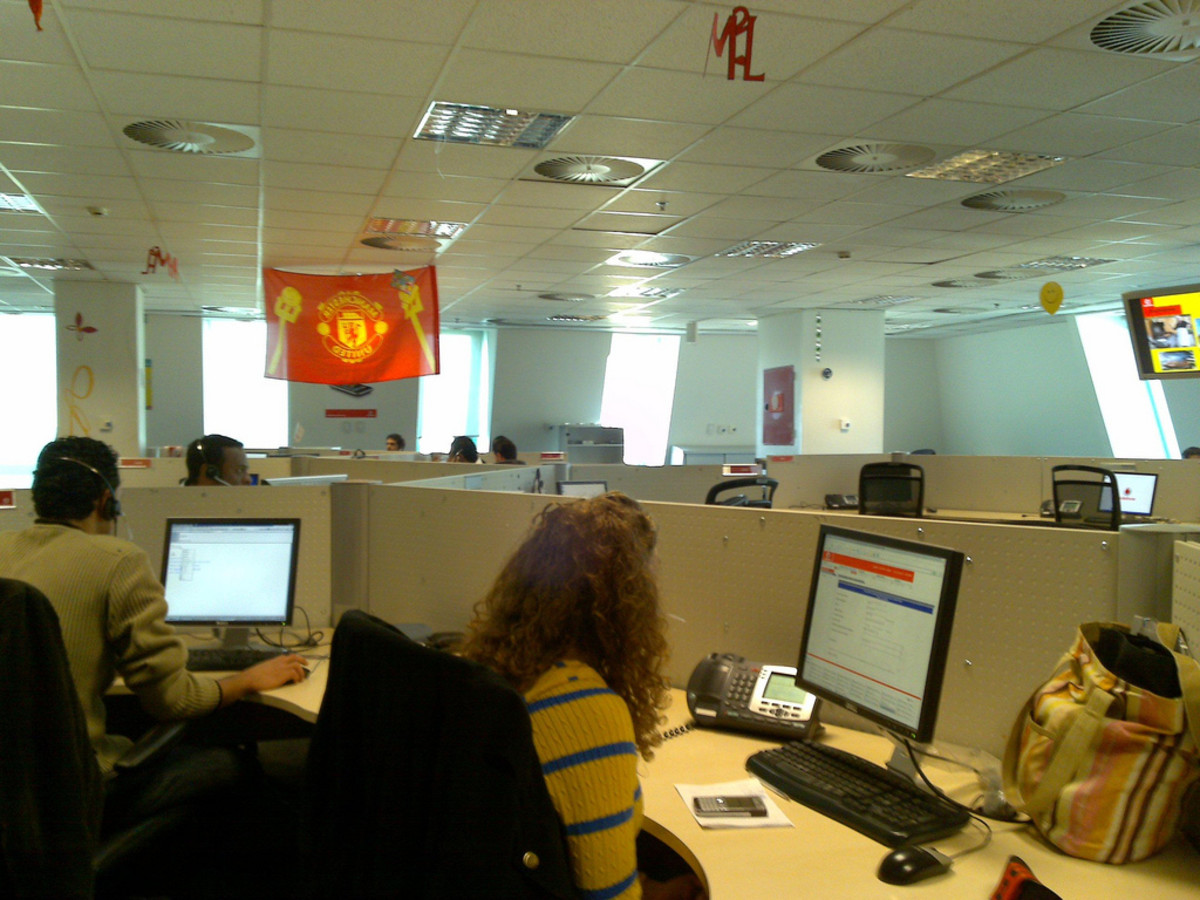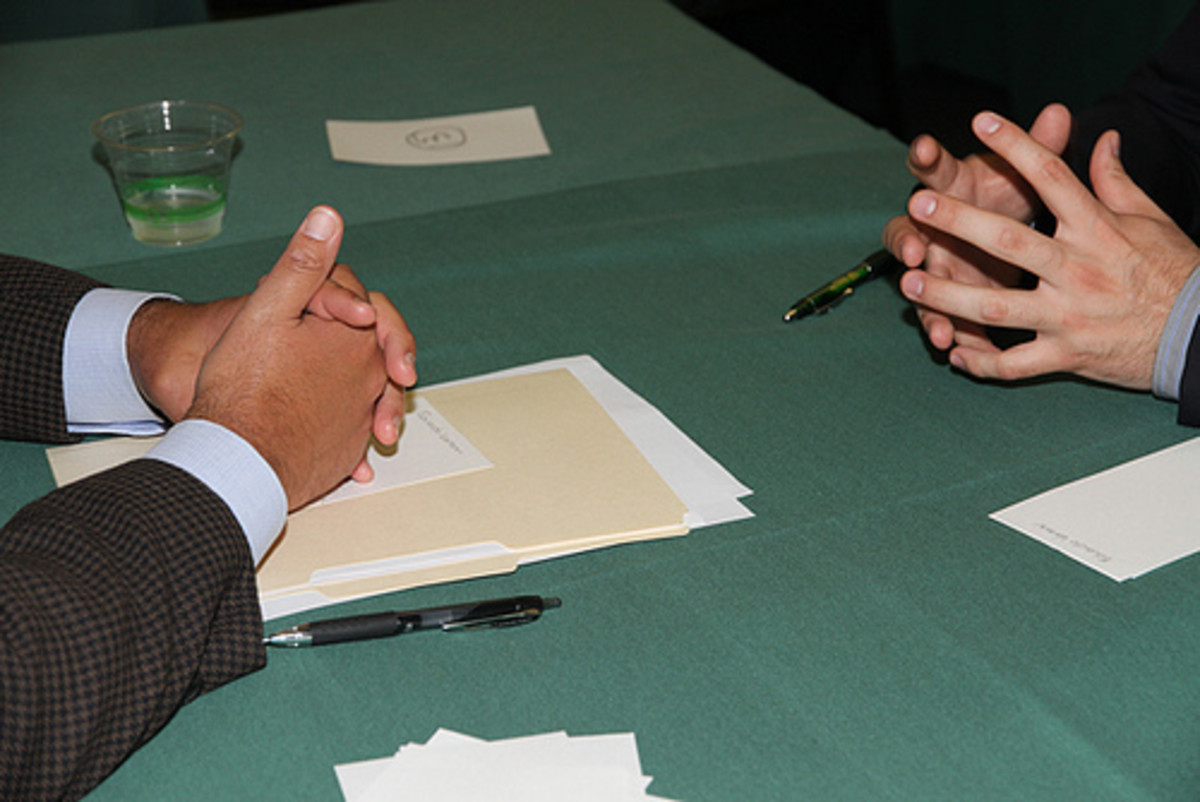- HubPages»
- Business and Employment»
- Employment & Jobs»
- Interviewing for a Job
12 Strategies for How to Prepare for a Job Interview


Confirm Your Attendance
It sounds simple but many applicants do not confirm their attendance at interviews. As soon as you have been invited either type an email or letter to thank the hiring manager for the invitation and confirm that you will be there. Even if you were invited by telephone, still write to confirm. If not all candidates do this then you are ahead of the game in terms of manners already.
How and Who
What will be the structure of the interview? Will it be a one to one or panel interview? Will it be an assessment centre where you may be required to take part in group exercises or role plays?
If you haven’t been given this information then a quick call to either whomever invited you or the HR department will help clarify the format of the interview and stop you feeling like you are about to leap into the abyss. Don’t be shy! Calling to ask what the format will be as you would like to prepare as best as possible won’t lose you any Brownie points, in fact you may get a gold star for assertiveness and paying attention to detail!
Who is interviewing you? Normally just a name will give you enough to find out more. Do they have a profile on Linkedin? If so, check it out. You may be able to see what their background is, how long they have been at the company and what their career progression looks like. If you know anyone who works for the organisation, ask them about your interviewer. What is their management style? Was your contact interviewed by them? If so ask which questions they were asked?
The more information you have the easier your preparation will become. No stalking though! That’s just plain wrong and illegal!
Research The Company
Ask any interviewer and most will tell you that an absolute deal breaker is if a candidate doesn’t know about the company. A common question asked at interviews is “What do you know about us?” so make sure you can answer this effectively.
You can find out an abundance of information from the company website if they have one, advertisements or stories in the press, television and even product packaging.
Research the company history.
- When was it founded and by whom?
- What is their mission statement, values and culture?
- How has the company developed and what plans do they have for expansion and development in the future?
- Who is the big boss? Are there any other managers or directors?
- Have they won any awards?
- Do they offer training programs?
- Any charity work or commitment to the local community?
- What are the opening times?
These are just some of the things you could find out which will also help you plan your own questions in advance.
Research The Role
The job advertisement is a great place to start and once selected for interview, candidates are often sent a more detailed job and person specification.
Take the time to analyse these documents and draw up a list of the most important essential criteria for both the professional and personal attributes then a second list to match their requirements with your skills, knowledge, experience and personality.
Research Competitors
Who are the direct competitors of the company and why? Are there any up and coming brands that could pose a potential threat in the short and long term future? Having a good commercial awareness is key and will show that you have taken a keen interest in the company and not just fired off a load of CVs hoping that you will land any job.

Predict Questions
Once you have all of the above information, you can then start to predict which questions you will likely be asked. Of course there will be general ones which you should have prepared for any interview:
- Why should we hire you?
- Why do you want to work here?
- What do you now about the company?
- What are your strengths/ weaknesses?
- Tell me about a time when you have worked as part of a team.
- Describe what great customer service looks like.
- Explain a problem you had in the workplace and how you overcame it.
By really analysing the job description and person specification together with your research on the company, people and culture, you should be able to second guess which areas you may be asked questions about.
What are the day to day duties or essential skills required? The chances are you will be asked about these and as more and more recruiters are using competency based style of questioning; examples or scenarios should be provided.
Prepare Questions
Almost all interviewers on the planet will ask “Do you have any questions?” so always have several prepared. Asking just one or two questions is adequate but always have at least four or five at the ready as some may already have been answered as part of the conversation.
Avoid asking questions surrounding salary, holidays and benefits. Wait until you have the offer before deciding whether or not it is for you.
Good questions are:
- How many people are in the team and how is it structured?
- How will my performance be measured?
- Can you describe to me a typical day in the job?
- What would be the key priorities in the first few months of the job?
- What are the company’s long term goals?
- Where do you see the company in five years time?
- What would you say is the most challenging aspect of the role?
- What training opportunities does the company offer?
- What does the promotional scale look like?
- What do you like most about working here?
- Do you have any concerns that we can discuss in more detail in order for me to be the top candidate?
- When can I expect to hear from you?
Practise
Grab a friend, family member, colleague, your dog…anyone, (ok, maybe not the dog) anyone at all with whom you can practise and receive feedback on both answering and asking questions.
Which questions do you find challenging? Are you normally a smooth talker and certain questions make you stutter or ramble? Practise practise, practise.
If can’t find a willing volunteer, try recording yourself. Most mobile phones have a record facility so use this to play back your answers. Do you sound confident, positive and engaging? No? Keep practising until you do.
Do you practise answering questions with someone you know before an interview?
Clothing
Plan your outfit in advance and have it washed, ironed and ready to wear at least the day before. Washing machines and irons never seem to break unless it is a really inconvenient time!
If you have taken the time to prepare in advance, you will get a better nights sleep and not be rushing around in the morning.
Location
Where is your interview to be held and at what time? Taking the time to plan your route and means of transport will reduce your nerves on the day.
If you can, try to do a test run a couple of days before. Do you have to travel during rush hour? What things might delay you? Taking the kids to school, road or engineering works and weather conditions are just some of the situations that you may have to allow more time for. Never be late for an interview! If for any reason there are exceptional circumstances that make you late then be sure to call the company and let them know but always, always allow additional time just in case something out of the ordinary happens. Take some spare cash with you in case you have to hail a last minute cab or buy yourself a coffee at the local cafe if you arrive exceedingly early.

What To Take
Take at least two copies of your CV, cover letter and any other supporting documentation such as certificates, examples of your work or recent CRB check with you in a folder, portfolio or bag which enable you to present them unfolded. You might also like to consider taking the job description and any notes you have on the company with you too so you can do some last minute swotting up.
Have a notebook and pen easily accessible with your planned questions written down so you can use these either to take notes or as a point of reference if you have a history of your mind going blank due to nerves.
If you have a map of the venue then take that too and any telephone numbers you may need.
Meet & Greet
As soon as you arrive for the interview, you are on show. Consider the interview starting point from when you walk up to the venue and not just when the questions start.
Be polite, courteous, friendly and professional with oodles of positive energy to everyone you meet or greet. You never know who they are or how they may influence the final decision.
Preparation + practise = perfect.
Quick Poll
Do you think you prepare sufficiently for job interviews?
© 2013 Julie Halliday









